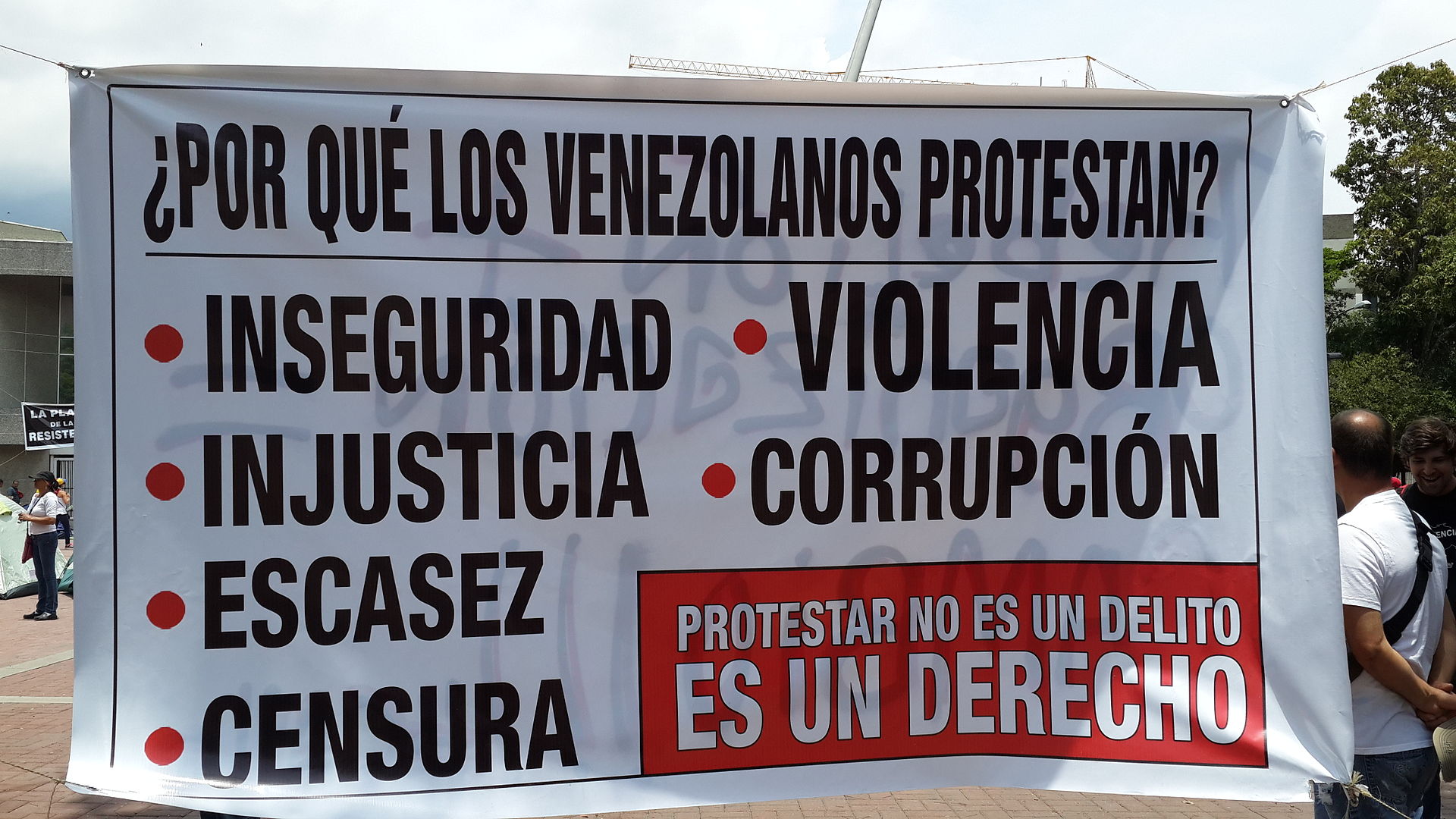Appeal for prayers for peace on Sunday 10 February
United in their concern to “avoid still greater suffering and pain for the people” and in their hope for a change in the course of the political and democratic situation that Venezuela is currently going through, the Venezuelan Bishops’ Conference have launched a joint communiqué, together with the Conference of Male and Female Religious and the National Council of the Laity in Venezuela, published on Monday 4 February in Caracas.
The statement expresses the “determination and hope” with which the signatories urge the search “for a political transformation via a process of transparent and peaceful transition that will lead to free and legitimate elections and the resumption of a democratic course, the restoration of the rule of law, the rebuilding of the social fabric, the revival of economic production, the restoration of the morale of the country and the coming together of all the Venezuelan people.” They speak of the difficult situation that is currently being written in the annals of Venezuelan history and one that both the Venezuelan people and clergy and also the international community are witnessing with great hope, and yet at the same time with great concern.
In their communiqué, the presidents of the three bodies which most fully represent the Catholic Church of the country denounce “the growing, politically motivated repression, the violation of human rights and the selective and arbitrary detentions” of individuals and they insist that this path of democratic change be allowed to unfold peacefully and with the National Constitution in hand.
They express their appreciation of the work of the activists who are defending and promoting human rights at a time of crisis and despite the risks, and they urge them to continue in their concern for “the victims who are suffering injustices”. They state: “We call for personal and legal respect and security for those who are exercising this worthy service in Venezuela.” In this way they remind people that the Catholic Church is committed to helping those most in need, “acting in accordance with the principles of independence, impartiality and humanity” and at the same time they request “the necessary permissions to have access to humanitarian aid as a means of mitigating the impact of the crisis on the most vulnerable of the people. Caritas Venezuela and the various other social support institutions of the Church which have a wider outreach throughout the national territory commit themselves to continuing the service we have been providing, with equity, inclusivity, transparency and effectiveness.”
The communiqué ends with a call for prayer on Sunday 10 February in “every church, every home and every community, calling on the Lord to grant us peace, reconciliation, liberty and health of body and spirit.”
An unprecedented situation
The current political situation in Venezuela is the result of the presidential elections held in May 2018 which, according to the official government version, were won by the incumbent president Nicolas Maduro, but which were widely qualified as “illegitimate” by the majority of countries in the international community, including other Latin American countries such as Argentina, Brazil, Chile, Colombia, Guatemala, Honduras, Mexico, Panama, Paraguay, Peru, and Santa Lucia, as well as by Canada, Spain and the United States on account of the numerous irregularities in the way in which they were held. Hence, given the illegitimate nature of the elections, President Maduro would thereby cease to be the legitimate president as from the conclusion of his previous mandate, on 10 January, and therefore no longer be recognised as President of the Republic. Instead, and in accordance with the Venezuelan Constitution, the acting president of Venezuela would be the president of the National Assembly of the country, who in this case is Juan Gerardo Guaidó. And so, on 11 January 2019, Guaidó announced that he would be invoking article 233 of the Constitution and calling new national elections, and on 23 January he was sworn in as acting president of Venezuela.





